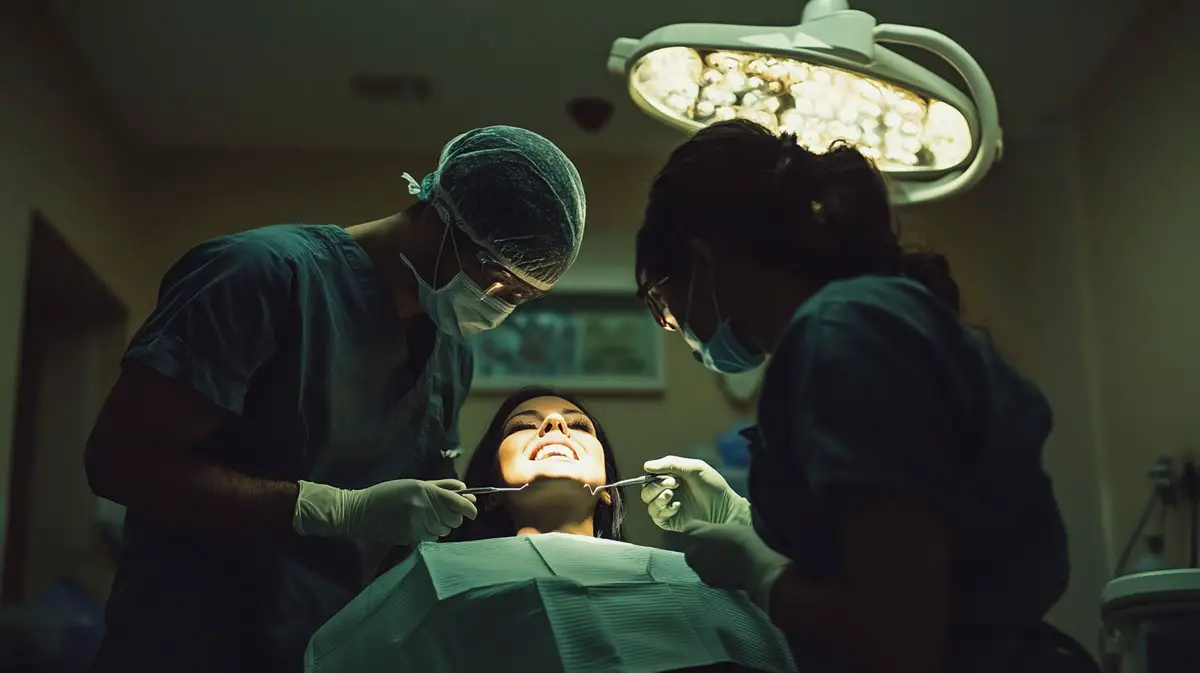Why Turkey Teeth Treatments Could Be a Risky Gamble for the Over 50s

The promise of a gleaming new smile at a fraction of UK prices has thousands of Britons boarding flights to Turkey each year. While these “Turkey teeth” procedures – typically involving crowns or veneers – might seem like the perfect solution to dental woes, dental experts are now sounding the alarm about hidden dangers that particularly affect those over 50.
With savings of up to 70% compared to UK prices, it’s easy to see the appeal, but as we explore below, the long-term costs could far outweigh the initial bargain.
The Growing Trend of Dental Tourism
The allure of affordable dental work abroad continues to captivate British adults seeking to restore their smiles without breaking the bank. Recent reports from Euronews Travel indicate a significant rise in British adults traveling abroad for dental work, with Turkey emerging as a particularly popular destination.
While these overseas treatments often come with enticing price tags, dental experts are raising serious concerns about the unique risks faced by older patients – a demographic that’s increasingly pursuing these options but may be most vulnerable to complications.
Dr. Rajesh Vijayanarayanan (Dr. Vijay), founder of full-mouth dental implant specialists 21D, explains that the combination of age-related factors, underlying health conditions, and limited aftercare creates a perfect storm of potential problems that many patients don’t consider until it’s too late.
Age-Specific Risks You Need to Know
The dental tourism industry often presents a simplified view of procedures, but the reality is far more nuanced – especially for those over 50. As we age, our oral health becomes increasingly complex, with issues that younger patients simply don’t face:
Compromised Healing Abilities
“As we age, our body’s natural healing processes slow down significantly,” notes Dr. Vijay. “Bone density decreases, gum health declines, and conditions like diabetes or osteoporosis – which are more common in older adults – can seriously impact recovery after dental procedures.”
This biological reality clashes directly with the expedited treatment timelines offered by many overseas clinics, which often complete major procedures in just a few days. For younger patients, this accelerated approach might be manageable, but for older adults, it can lead to serious complications.
Travel-Related Complications
The journey itself poses additional risks that younger patients might shrug off but can be significant for the over-50s demographic:
“Long-distance travel inherently increases health risks for older adults, including blood clots, fatigue, and exacerbation of existing conditions,” Dr. Vijay points out. “When you combine this with recovering from oral surgery, you’re creating conditions that can seriously hinder healing and recovery.”
Communication Barriers
Language differences can lead to critical misunderstandings about procedures, risks, and aftercare instructions. While younger patients might navigate translation apps with ease, this solution is often less accessible for older patients who may require more detailed explanations, especially when managing multiple health conditions.
As Dr. Vijay explains, “Approaches to patient care and ethical considerations surrounding medical practices differ across cultures. What’s considered standard practice in the UK may not be mirrored abroad, leading to potential misalignment in patient expectations.”
The Quality Question
The standards of care and regulation vary significantly between countries. Many clinics in Turkey market themselves as high-quality providers, but oversight is often limited compared to UK standards.
“A significant risk is the variability in standards of care and materials used in some overseas clinics,” warns Dr. Vijay. “While cost savings might attract patients, some facilities may use lower-quality implants or outdated techniques to keep prices low. This can result in implant failure or additional complications over time, leading to higher overall costs and more invasive corrective treatments.”
Research published by the Royal College of Surgeons highlights that the potential for complications from procedures increases with age, particularly when underlying health issues are present. For the over-50s demographic, this represents a substantial risk factor that shouldn’t be overlooked.
The Aftercare Gap
Perhaps the most significant concern for older patients is what happens after they return home. If complications arise, UK dentists may be reluctant to take on cases where they didn’t perform the original work.
“Common issues like infections, misaligned implants, or inadequate healing may arise, and addressing these problems typically requires a return trip to the original clinic,” says Dr. Vijay. “UK-based dentists may hesitate to take over such cases due to the complexity of repairing work performed elsewhere, leaving patients in a vulnerable position.”
This aftercare gap can be particularly problematic for older patients who may have mobility issues or other health concerns that make additional international travel challenging or impossible.
Legal Protections – or Lack Thereof
Another often-overlooked aspect is the limited legal recourse available if things go wrong. Patients who undergo procedures abroad typically lack the same legal protections they would have in the UK. In the event of malpractice or unsatisfactory results, pursuing compensation often means navigating foreign legal systems – a daunting prospect for anyone, but especially challenging for older adults.
Making Informed Choices
As Reuters reports, the number of British adults seeking dental treatment abroad shows no signs of slowing. For those over 50 who are considering this route, Dr. Vijay offers this advice:
“Before making any decisions about overseas dental work, consult with a trusted UK healthcare professional who can provide valuable insights based on your specific health profile. For patients experiencing significant tooth loss, exploring full-mouth dental implants in the UK may actually be more cost-effective in the long run than pursuing single implants abroad.”
At 21D, Dr. Vijay and his team specialize in full-mouth dental implant solutions, offering comprehensive assessments that include CBCT scans, intra-oral scans, and facial photographs to analyse each patient’s dental needs thoroughly.
“For suitable candidates, full-mouth dental implants represent a transformative solution for individuals facing the challenge of significant tooth loss,” Dr. Vijay explains. “We provide a personalised, fully costed treatment plan on the spot, and the cost remains the same regardless of how complex the situation is for the patient or how much additional work is required.”
While the prospect of affordable dental work abroad may be tempting, the associated risks – particularly for adults over 50 – demand careful consideration. When it comes to your health and wellbeing, prioritising safety and quality care should always come first.










